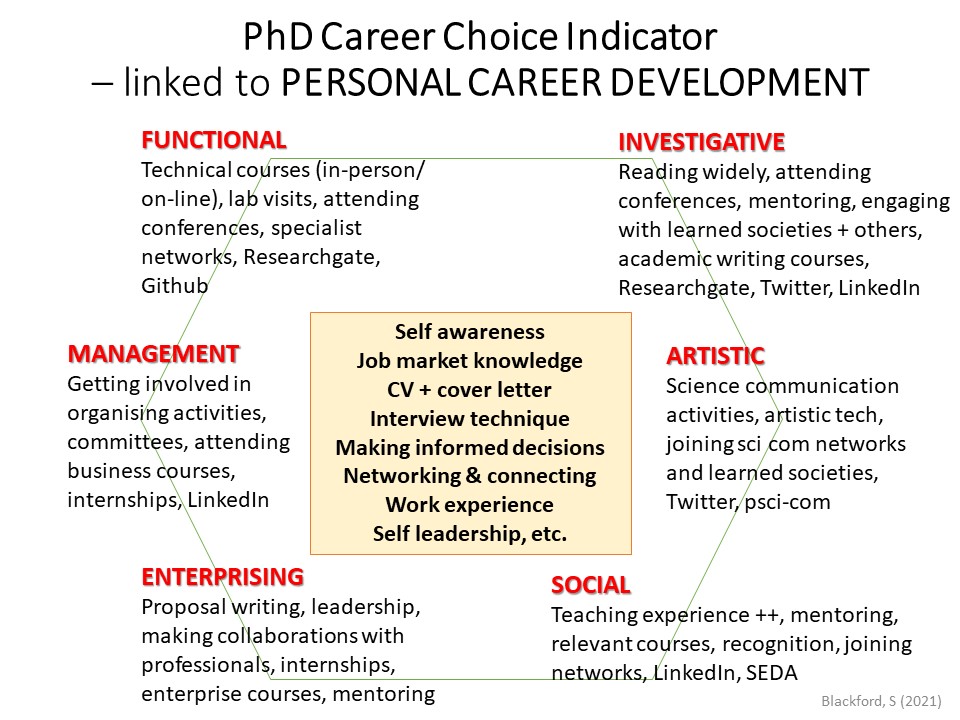
As we enter a new year (after a seemingly never-ending January), many of us will be reflecting on our progress so far in 2021. If, like me, you’re poised to renew your yet-to-start New Year Resolutions, maybe it’s a good time to reflect on your intended goals in terms of what’s possible and what’s realistic.
It’s easy to overload ourselves with a long list of aspirations, trying to make up for end-of-year December lethargy and distractions. However, if you look back at your achievements in the previous year, do you really feel disappointed with your accomplishments? These days, just getting through the month can be a success in itself, let alone expecting high-level productivity, whatever that may mean for you personally.
So, how can you set out a realistic personal development plan over the coming months so that you don’t overload yourself? How can you improve on your employability to help you to transition to your next role, even if that’s months or years in the future? We all have gaps in our experience and skills that need to be filled to increase our chances to secure our next job or to win promotion, but we need to balance that with the everyday activities in our current role.
As a careers adviser and educator, I help PhD students and researchers, individually and in groups, to consider the kinds of activities they can do to help increase their employability depending on their career ambitions. Due to research obligations and time limitations, it’s important that personal development is targeted to the right kinds of actions so that they’re fruitful and improve employment prospects.
With this in mind, I recently adapted my PhD Career Choice Indicator (PhDCCI), replacing current skills and interests with future activities that link with career objectives. At its heart, the framework includes the more generic career planning and management essentials, such as self and labour market knowledge, networking and interview technique that are fundamental to making a successful career transition. On the periphery, the six categories distil out the individualised personal development needs targeted to different types of careers.

Based on the original theory of John Holland, the six categories of the PHDCCI – Functional, Investigative, Artistic, Social, Enterprising and Management – are described in my blog: “Decisions, decisions”, and demonstrate how enjoyment of particular skills and interests can provide clues to careers in which many of them are employed. By mapping this concept onto personal career development instead, PhD students and researchers can easily identify for themselves possible actions to assist them in enhancing their employability relevant to their career intentions.
For example, for those who are interested in a career in academia, activities associated with ‘Investigative’ and ‘Enterprising’ are important to assist them to develop their intellectual, collaborative and curiosity-driven capabilities and associated networks, helping them to build productive networks and relationships. On the other hand, those interested in more teaching-orientated academic positions might want to enhance their ‘Social’ teaching/support experiences and seek recognition or further professional qualifications.
Personal development activities such as those associated with ‘Functional’ and ‘Management’, will be of value to those considering a move into industry as a specialist scientist or researcher, where technical/programming skills coupled with proven management/teamworking experiences will be an asset. Furthermore, for those of an ‘Artistic’ disposition, who enjoy science communication, visuals and infographics, building up a portfolio of outreach or writing experiences will afford entry into associated professions such as public engagement and policy careers.
In addition to these types of activities, targeting particular social media and professional organisations helps to focus attention on just a limited number of communication outlets so as to avoid overload. LinkedIn tends to be a catch-all these days, although how you present yourself will differ according to your intentions. More specialist networks exist for most professions and it can be advantageous to connect with them to reach out to current professionals and hear about latest news, policies and even training opportunities and vacancies.
I hope you find the PhDCCI a useful additional tool to help with your career development. For my own part, I have a few training webinars lined up this year to refresh my coaching skills and tomorrow marks the first day of my “Dry February” (moved back from the originally intended Dry January). 😊